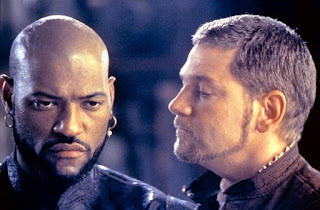I mentioned on Facebook this morning that it's Norman Mailer's birthday today (he died in 2007)--and I also mentioned that, not long after he died, I spoke at Western Reserve Academy about him. I was teaching there at the time.
Here's the text for what I said that day to a school assembly, Wednesday, November 14, 2007 (he had died on Nov. 10).
Norman
Mailer, R.I.P.
Let me tell you a
story …
It’s not my story—I
didn’t write it—but I’ve always liked it, and it’s not very long … so here goes
…
A man and a woman are
walking along a city street. They have
been lovers. And now they are breaking
up. Here’s the first sentence in the
story: The writer was having a fight with
his young lady. They don’t walk far
before she says, “I’m sick and tired of
you being so superior. What do you have
to be superior about?” The writer
quietly disagrees. Later—even more
angry—she says he’s like a mummy, all wrapped up in himself. As her anger deepens—and as her accusations
become more bitter—he begins to feel uneasy, not about her anger (though that
does bother him), but about the notebook in his pocket. He had
just thought of an idea to put into his notebook, and it made him anxious to
think that if he did not remove his notebook from his vest pocket and jot the
down the thought, he was likely to forget it. He tries to resist the impulse. But can’t.
He stops in the street, pulls out the notebook, starts writing an idea
for a story, a story about a writer breaking up with his girlfriend. The young woman, seeing him, begins to
cry. “Why,
you’re nothing but a notebook,” she shrieked, and ran away from him down the
street, her high heels mocking her misery in their bright tattoo upon the
sidewalk. He stares after her. Soon she’s a block away. He starts jogging after her, yelling that he
can explain. And as he ran the notebook jiggled warmly against his side, a puppy of
a playmate, always faithful, always affectionate.
Norman Mailer published
that story in 1951. He was twenty-eight
years old; I was seven. He would publish
much, much more over the years—novels, long works of nonfiction, essays,
screenplays, poems, plays … you name it, Mailer probably wrote it. He made films. Ran for Mayor of New York (he lost). Married four times. Sired nine children. Carried on feuds with some of the great names
in American letters. He won the Pulitzer
Prize. He won the National Book
Award. And countless other literary honors. He never won the Nobel Prize, and that irked
him, for Norman Mailer had an ego, a titanic ego that constantly crashed into
icebergs of all sorts over the years. He
hit those icebergs, head on. But he
never sank.
Here are some of his
best-known books. …
His most recent novel
is this one. It’s a story about Hitler
that came out earlier this year. It’s
been tottering atop the Tower-of-Pisan pile beside my bed, but I’ve not read
it. Not yet. I’d read that he was sick. And I had a feeling this would be the last novel
he would ever write. And I wanted to
save it. To savor it. To remember it.
Norman Mailer died
last weekend. He was 84 years old. He was one of the heroes of my youth. Several times, I have dreamed—actually dreamed, at night—of meeting him. It never happened.
I do have his signature on this book, The Time of Our Time [show it], a collection of pieces he published
back in 1998. It will have to do. His name scrawled on the title page.
So as I think this
morning about that little story “The Notebook,” a story now more than a
half-century old, I think how fitting a way it is to remember him. Norman Mailer charged through his life,
barging uninvited into rooms, banging into polite people, making rude noises
and ruder gestures, taking swings at enemies, celebrating, loving ferociously,
enjoying every second of his life.
Standing up for Civil Rights.
Protesting the Vietnam War. Going
to jail for his beliefs.
And we should be
grateful—all of us—that through all those years he carried that notebook with
him, and even at the damnedest, most irritating times, he pulled it out. And took his pen, whose ink mixed acid and
fire and blood and even sometimes poison, and wrote those words that sometimes
made us shriek and cry and run away. But
could also comfort and agitate and shame and inspire and chide and enrage. And even make us weep.
Which is exactly what
I did last weekend when I read that he was gone.


























